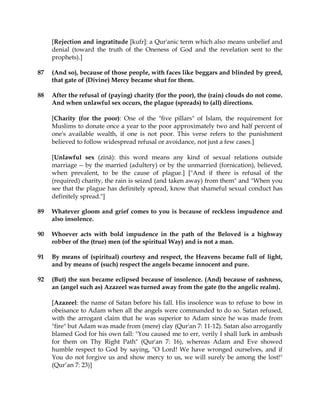In the diverse panorama of religious philosophies, the Bahá’í teachings encapsulate a wealth of insights that resonate with individuals across varied cultures and backgrounds. Among these teachings, the principle of courtesy emerges as a fundamental tenet, heralded as the true mark of a spiritual person. This examination unravels the intricate layers of courtesy, illuminating its profound significance in spiritual evolution and interpersonal relationships.
At the core of the Bahá’í faith lies the understanding that true spirituality is manifested not merely through devotional rituals or intellectual comprehension of sacred texts but vividly through one’s interactions with others. Courtesy is perceived as more than mere politeness; it embodies a profound respect for the dignity of every individual. This respect stems from the belief that all human beings are reflections of the Divine, endowed with inherent worth. To cultivate courtesy is to acknowledge this intrinsic value, thus elevating one’s spiritual practice beyond the self.
Why do people often find courtesy captivating? This observation warrants contemplation. In a world characterized by discord and divisions, the act of graciousness fosters connections that transcend superficial differences. Courtesy serves as a bridge to understanding, facilitating dialogue where previously there may have been discord. The Bahá’í teachings emphasize the importance of unity and harmony, intrinsically linking these ideals to the practice of courtesy. Through thoughtful communication and actions imbued with kindness, individuals can contribute to a more harmonious society, demonstrating the transformative power of courtesy as a tool for peace.
Furthermore, the practice of courtesy is deeply interwoven with the concept of humility, which is central to Bahá’í teachings. A humble individual recognizes their position in the grand tapestry of existence, leading to an authentic interpersonal engagement. It allows one to approach others with an open heart, free from the shackles of ego. As humility flourishes, so too does the capacity for genuine courtesy. This interconnectedness suggests that the cultivation of one virtue can catalyze the growth of others, fostering an environment in which spiritual qualities can thrive.
In exploring this theme further, one can observe that courteous behavior is often met with reciprocity. When one extends respect and kindness, others are inclined to respond similarly. This creates a virtuous cycle, wherein courtesy amplifies and nurtures an ethos of compassion and understanding. Within Bahá’í communities, this principle is actively practiced, reflecting the diverse cultures of its followers while fostering a collective spirit of respect and dignity.
The Bahá’í writings elucidate that courtesy is not merely a social nicety but rather a manifestation of one’s spiritual essence. When individuals embody courtesy, they mirror the attributes of God, such as mercy and compassion. This alignment with divine characteristics not only enriches the individual’s spiritual journey but also becomes a source of inspiration for others. It beckons individuals to consider their personal actions and the wider implications of their behavior on society at large.
Moreover, the practice of courtesy is situated within the larger context of service to humanity. Service, as a noble duty, takes multiple forms, from direct acts of kindness to the undertaking of communal responsibilities. In alignment with Bahá’í principles, service rooted in courtesy is characterized by selflessness, where the motives are collective progress rather than personal gain. A spiritual individual actively seeks to uplift others through their words and actions, revealing courtesy as a bedrock of meaningful service.
The teachings also compel adherents to recognize that courtesy is universal in its application. It transcends cultural, racial, and national boundaries, embodying a profound truth: we are all interconnected. In expressing courtesy to individuals from diverse backgrounds, Bahá’ís affirm their commitment to the unity of mankind. This recognition not only enriches personal relationships but also contributes to global efforts towards the establishment of peace and understanding. In a world punctuated by contention, such practices become vital avenues for creating intentional, respectful interactions.
In practical terms, how does one embody courtesy in daily life? The Bahá’í teachings suggest simple yet profound actions: listening attentively to others, expressing gratitude, and being mindful of one’s language. The small yet significant gestures—holding the door for someone, offering a sincere compliment, or simply inquiring about another’s wellbeing—create a tapestry of respect that can uplift ordinary encounters into extraordinary experiences. It is this commitment to daily practices of courtesy that forms the foundation of a spiritually enriched life.
In conclusion, courtesy is far more than an ethical obligation; it is a reflection of one’s spirituality. Within the Bahá’í framework, courtesy encompasses humility, service, and a commitment to unity. As individuals aspire to embody this virtue, they contribute to the betterment of their communities and the world at large. The transformative nature of courtesy not only augments personal spiritual growth but also fortifies the bonds of humanity. Embracing this profound aspect of the Bahá’í teachings fosters a deeper understanding of what it means to be truly spiritual—being gracious, respectful, and embodying the essence of divine love in every interaction.
